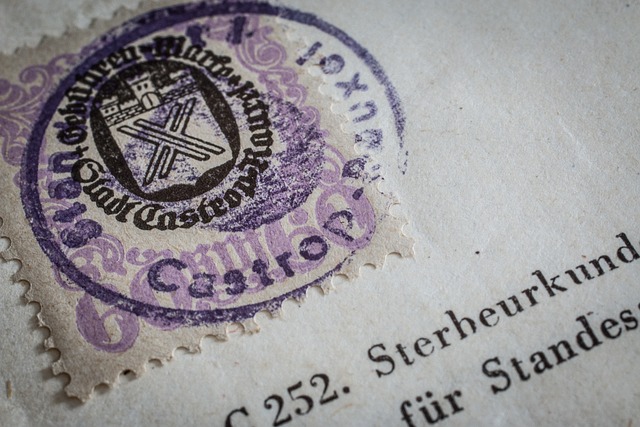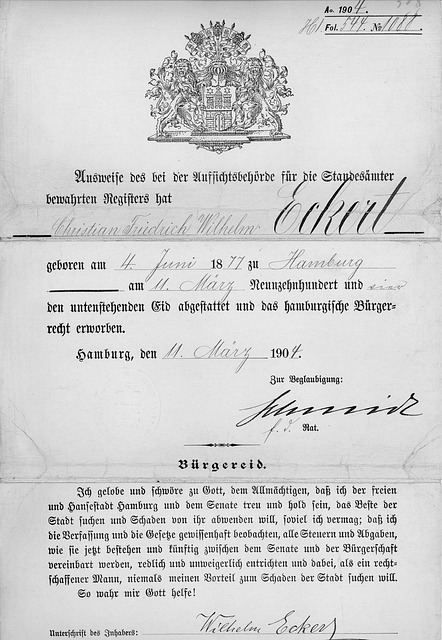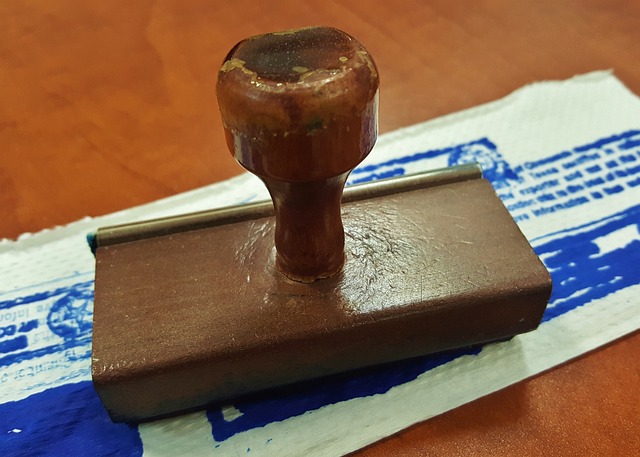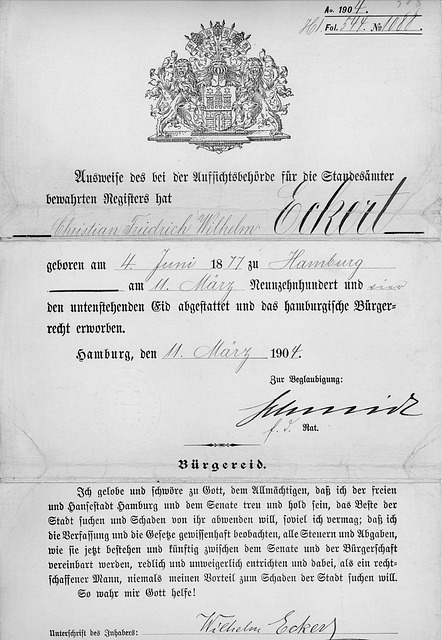When dealing with UK authorities and your documents are in a foreign language, it's essential to have precise and notarized translations to ensure they are accepted and processed correctly. Notarised translation services UK provide certified translators who work in tandem with a notary public to verify the accuracy and completeness of the translated content, making them legally binding and credible for official use. These services are tailored to meet the specific requirements of various UK government departments, agencies, and legal entities, ensuring that your documents are compliant with the necessary standards from citizenship applications to business compliance. It's crucial to select a reputable service provider with a proven track record in providing translations that satisfy the stringent demands of UK authorities, thus facilitating a smooth and efficient process for your official dealings.
When engaging with UK authorities, the authenticity of documents is paramount. This article elucidates the necessity of notarised translations for foreign-language documents, a service pivotal in the UK’s legal and administrative framework. We delve into the legal stipulations governing notarised documents, the nuances of their procurement, and the critical role of certified translation providers in the UK. Understanding the intricacies of this process is crucial for anyone dealing with cross-border legal or official matters. From the stringent requirements to the potential repercussions of mishandled translations, our comprehensive guide offers insights into the most common types of documents requiring such translations and ensures that your translations meet the highest standards for UK authorities.
- Understanding the Role of Notarised Translation Services in the UK
- The Legal Requirements for Notarised Documents in the UK
- The Process of Notarising Documents for International Use
- Identifying Reputable Notarised Translation Providers in the UK
- The Importance of Accuracy in Notarised Document Translations
- Common Types of Documents Requiring Notarised Translations in the UK
- The Consequences of Using Uncertified or Incorrect Translations with UK Authorities
- How to Choose the Right Certification for Your Translated Documents
- Tips for Navigating the Notarisation and Translation Process for UK Authorities
Understanding the Role of Notarised Translation Services in the UK

When engaging with UK authorities, the importance of accurate documentation is paramount. In such instances, notarised translation services in the UK play a critical role in facilitating clear communication between individuals and official bodies. These services ensure that legal documents, contracts, certificates, and other critical papers are translated by authorised translators who have been certified by a notary public. This certification verifies the identity of the translator and the authenticity of their work, providing UK authorities with the assurance that the content has been precisely and faithfully rendered into the required language. The notarisation process involves the notary public confirming the translator’s qualifications, comparing the original document with its translated version to ensure they are equivalent, and then affixing their official seal or stamp to the document. This adds an additional layer of trustworthiness and legality to the translation, making it widely accepted across various UK institutions, including government departments, courts, and corporate entities. Utilising notarised translation services in the UK is therefore essential for anyone requiring documents to be understood and recognised by official channels, ensuring that the intended message is accurately conveyed without any legal ambiguities or discrepancies.
The Legal Requirements for Notarised Documents in the UK

When engaging with UK authorities, it is imperative to present documents that are not only accurately translated but also legally authenticated. Notarised translation services in the UK play a critical role in this process by ensuring that translations of foreign-language documents are precise and carry the necessary legal weight. A notarised document translation involves having the translation certified by a qualified notary public, who verifies the identity of the translator, confirms the accuracy of the content, and attests to its authenticity. This legal endorsement is crucial for UK authorities to recognize and act upon the translated documents, particularly in legal, academic, or corporate settings where official documentation is mandatory. The process adheres to strict guidelines set out by the Notaried Documents (Executed Outside the United Kingdom) Regulations 1991, which dictate that the original document and its translation must both be notarised for them to be accepted. This ensures that the translated documents are a true and faithful representation of the original, thereby upholding the integrity and credibility of the legal proceedings or transactions at hand.
The UK’s stringent requirements for notarised translations are designed to safeguard against fraud and misrepresentation, ensuring that all parties involved can trust the authenticity and reliability of the translated content. It is a legal necessity for individuals and organisations to procure these services from professional notarised translation services UK that are affiliated with reputable notaries. These service providers are well-versed in the specific legal frameworks applicable to different types of documents, such as personal identification papers, academic credentials, commercial contracts, or legal correspondence, and can navigate the necessary procedures to ensure that translations meet the exacting standards expected by UK authorities. This due diligence is essential for the effective functioning of multilingual interactions within the UK’s diverse society.
The Process of Notarising Documents for International Use

When individuals or businesses require legal documents to be recognised by UK authorities for international use, notarising translations become a critical step in the process. The process of notarising documents for international use begins with selecting reputable notarised translation services UK that offer both certified translations and notarisation under one roof. This ensures the translation is accurate and the notarisation is legitimate, as both are essential to authenticate the document’s content and the translator’s identity. The notary public will verify the translator’s qualifications and certify that the translation is a true and accurate representation of the original document. Once notarised, the document can be submitted to the relevant UK authority for further official stamping or apostille, which verifies the document’s authenticity abroad. This meticulous process facilitates international legal compliance and recognises the translated documents as legally binding within the jurisdiction of the receiving country. It is imperative that individuals choose translation services with notaries who are well-versed in both the source and target languages, as well as familiar with the legal requirements of both the UK and the destination country to avoid any complications or rejections upon submission.
Identifying Reputable Notarised Translation Providers in the UK

When engaging with UK authorities, the authenticity of foreign documents is paramount, and a notarised translation becomes an essential step in the verification process. To ensure that your translated documents are accepted by UK authorities, it is crucial to identify reputable notarised translation providers within the UK. These providers have certified translators who not only possess linguistic proficiency but also a deep understanding of legal requirements and protocols specific to the UK. When selecting a provider, look for those accredited by relevant professional bodies, such as the Institute of Translation and Interpreting (ITI) or the Chartered Institute of Linguists (CIOL). These accreditations are indicative of the translator’s expertise and commitment to maintaining high standards.
In addition to accreditation, a trustworthy notarised translation service in the UK will offer a seamless process where the translation is both notarized by a qualified notary public and certified as a true representation of the original document. This dual certification ensures that your translated documents meet the stringent requirements set forth by UK authorities, thereby avoiding potential delays or rejections. It is advisable to conduct thorough research and read reviews or testimonials about potential translation services to guarantee their reliability and professionalism. Opting for notarised translation services UK with a proven track record will provide peace of mind that your documents are in compliance with legal standards, facilitating smoother interactions with UK authorities.
The Importance of Accuracy in Notarised Document Translations

When engaging with UK authorities, the precision of notarised document translations is paramount. The accuracy of translations in a legal context is not just a matter of linguistic correctness; it is a cornerstone of trust and legality. Notarised translation services UK play a crucial role in ensuring that translated documents reflect the exact content of their original form, as authorized by a notary public. This process authenticates the translator’s identity and competence, and confirms that the translation is complete and faithful to the source document. The stakes are high, as any discrepancy could lead to delays, legal complications, or even the rejection of the document by UK authorities. Therefore, when seeking notarised translation services in the UK, individuals and organisations must opt for providers with a proven track record of adhering to strict quality standards and regulatory compliance, thereby safeguarding the integrity of their documents and facilitating smooth interactions with public bodies. The reliability of these translations is essential, as they often serve as the basis for official decisions, legal proceedings, and various administrative processes.
Common Types of Documents Requiring Notarised Translations in the UK

When engaging with UK authorities, it is often necessary to present documents that are both notarised and accurately translated into English. Notarised translation services UK play a pivotal role in this context, as they ensure the authenticity and legal acceptance of foreign-language documents. Common types of documents that typically require such services include personal identification papers, academic credentials, legal contracts, and corporate records. For individuals, passports, birth certificates, marriage certificates, and divorce decrees are frequently notarised and translated to facilitate processes like citizenship applications or visa procurement. In the realm of business, companies often need to translate and notarise commercial agreements, articles of incorporation, and annual returns to comply with UK legal requirements. These notarised translation services UK bridge the language gap, providing official documentation that is legally binding and recognized by all levels of government and various private sector organizations within the UK. This process guarantees that the translated content accurately reflects the original document’s meaning, ensuring that all parties involved can rely on its authenticity and integrity.
The Consequences of Using Uncertified or Incorrect Translations with UK Authorities

When engaging with UK authorities, the integrity of documentation is paramount, particularly when such documents are in a language other than English. Uncertified or incorrect translations can lead to significant complications and adverse consequences. Such translations may be disregarded by UK authorities, leading to delays or outright rejection of applications or submissions. This not only causes inconvenience but can also result in legal ramifications if the incorrect information leads to misrepresentation or misunderstandings of the facts.
In contrast, notarised translation services UK are designed to mitigate these risks. A notarised translation is one that has been verified by a qualified and appointed translator before a notary public. This process ensures that the translation is both accurate and complete, providing authorities with the confidence that the document’s contents accurately reflect the original. Utilising professional notarised translation services UK is crucial for legal and administrative processes, as it confirms the authenticity of the translated content and reduces the likelihood of errors or misinterpretations that could compromise legal standing or proceedings. This level of verification is essential to maintain the integrity of the documentation and to expedite the processing by UK authorities.
How to Choose the Right Certification for Your Translated Documents

When engaging with UK authorities and requiring a notarised translation of your documents, it is imperative to choose the right certification to ensure the document’s legitimacy. Not all translations necessitate the same level of certification; thus, understanding the distinction between various types of certified translations is crucial. For instance, if you are submitting a document to a UK authority, a notarised translation might be necessary. This process involves having your translated document certified by a public notary who attests to the accuracy and completeness of the translation. Additionally, depending on the context, the translation may also need to be endorsed by the Foreign and Commonwealth Office (FCO) or a corresponding body within the UK. For translations intended for official use, opting for a professional translation service that specialises in notarised translation services UK can provide assurance that all legalities are correctly adhered to. These services ensure that translators are natively fluent in both the source and target languages and hold relevant qualifications, guaranteeing precise and authoritative translations for your interaction with UK authorities.
In selecting a provider of notarised translation services UK, it is essential to verify their accreditation and experience. Reputable service providers will have a proven track record of successfully completing translations that are accepted by UK authorities. They should be well-versed in the specific requirements of different UK government departments and agencies, ensuring that your translated document will meet the necessary criteria. Furthermore, they should offer clear guidance on the certification process and provide all relevant certificates upon completion, thus streamlining your interaction with UK institutions. By choosing a service that is adept at navigating the nuances of official translations and notarisation, you can mitigate potential complications and expedite your dealings with UK authorities effectively.
Tips for Navigating the Notarisation and Translation Process for UK Authorities

When engaging with UK authorities and requiring documents to be notarised and translated, it is imperative to follow a meticulous process to ensure the validity and accuracy of your translations. To begin with, identify the specific authority you are dealing with in the UK, as different bodies may have distinct requirements regarding the format, language proficiency of the translator, and the notarisation of documents. For instance, notarised translation services UK must adhere to strict guidelines set forth by The UK Notary. It is advisable to consult with these authorities early in the process to understand their particular stipulations.
Once you have the necessary information, locate a reputable firm offering notarised translation services UK-wide. These firms typically employ professional translators who are adept at working within the legal context and familiar with the nuances of both source and target languages. They will ensure that your documents are not only accurately translated but also bear the required notarisation to be accepted by UK authorities. Additionally, request certified translations if needed; these often come with a statement of accuracy and the translator’s contact information, which can be crucial for verification purposes. By preparing thoroughly and choosing a competent service provider, you can navigate the notarisation and translation process for UK authorities with confidence and compliance, facilitating a smoother interaction with the relevant institutions.
In conclusion, navigating the requisites of notarised document translations within the UK’s legal framework can be a straightforward process with the right guidance. It is imperative for individuals and organisations alike to engage with professional notarised translation services in the UK to ensure compliance with authorities. The legal validity of such translations hinges on their accuracy and the credibility of the translators involved. By choosing established providers that specialise in notarised translation services UK, one can mitigate potential complications and uphold the integrity of their international communications. It is a prudent step for anyone dealing with official documents across linguistic boundaries to be well-versed in the protocols and to approach certified translators with expertise in the relevant languages and legal systems. With diligence and attention to detail, your translated documents will meet the stringent standards required by UK authorities, facilitating smooth and effective cross-border interactions.
